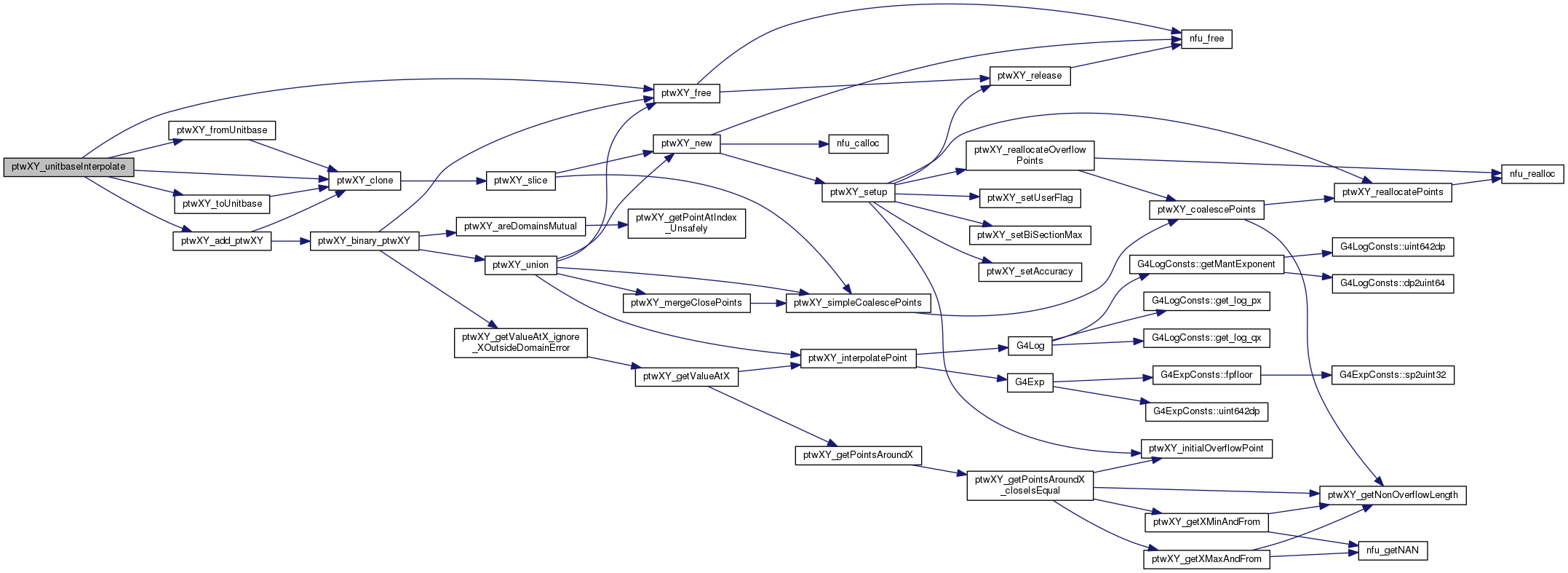|
Geant4
10.03.p01
|
|
Geant4
10.03.p01
|
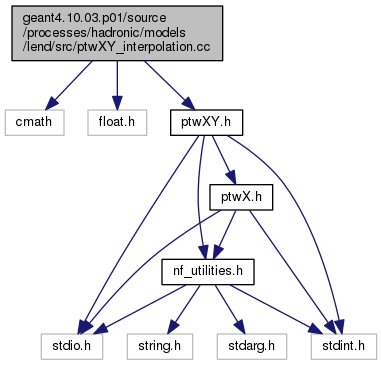
Go to the source code of this file.
Macros | |
| #define | minEps 5e-16 |
Typedefs | |
| typedef nfu_status(* | interpolation_func )(ptwXYPoints *desc, double x1, double y1, double x2, double y2, int depth) |
Functions | |
| static double | ptwXY_flatInterpolationToLinear_eps (double px, double eps) |
| static nfu_status | ptwXY_toOtherInterpolation2 (ptwXYPoints *desc, ptwXYPoints *src, interpolation_func func) |
| static nfu_status | ptwXY_LogLogToLinLin (ptwXYPoints *desc, double x1, double y1, double x2, double y2, int depth) |
| static nfu_status | ptwXY_LinLogToLinLin (ptwXYPoints *desc, double x1, double y1, double x2, double y2, int depth) |
| static nfu_status | ptwXY_LogLinToLinLin (ptwXYPoints *desc, double x1, double y1, double x2, double y2, int depth) |
| static nfu_status | ptwXY_otherToLinLin (ptwXYPoints *desc, double x1, double y1, double x2, double y2, int depth) |
| nfu_status | ptwXY_interpolatePoint (ptwXY_interpolation interpolation, double x, double *y, double x1, double y1, double x2, double y2) |
| ptwXYPoints * | ptwXY_flatInterpolationToLinear (ptwXYPoints *ptwXY, double lowerEps, double upperEps, nfu_status *status) |
| ptwXYPoints * | ptwXY_toOtherInterpolation (ptwXYPoints *ptwXY, ptwXY_interpolation interpolationTo, double accuracy, nfu_status *status) |
| ptwXYPoints * | ptwXY_toUnitbase (ptwXYPoints *ptwXY, nfu_status *status) |
| ptwXYPoints * | ptwXY_fromUnitbase (ptwXYPoints *ptwXY, double xMin, double xMax, nfu_status *status) |
| ptwXYPoints * | ptwXY_unitbaseInterpolate (double w, double w1, ptwXYPoints *ptwXY1, double w2, ptwXYPoints *ptwXY2, nfu_status *status) |
| #define minEps 5e-16 |
| typedef nfu_status(* interpolation_func)(ptwXYPoints *desc, double x1, double y1, double x2, double y2, int depth) |
Definition at line 19 of file ptwXY_interpolation.cc.
| ptwXYPoints* ptwXY_flatInterpolationToLinear | ( | ptwXYPoints * | ptwXY, |
| double | lowerEps, | ||
| double | upperEps, | ||
| nfu_status * | status | ||
| ) |
Definition at line 74 of file ptwXY_interpolation.cc.
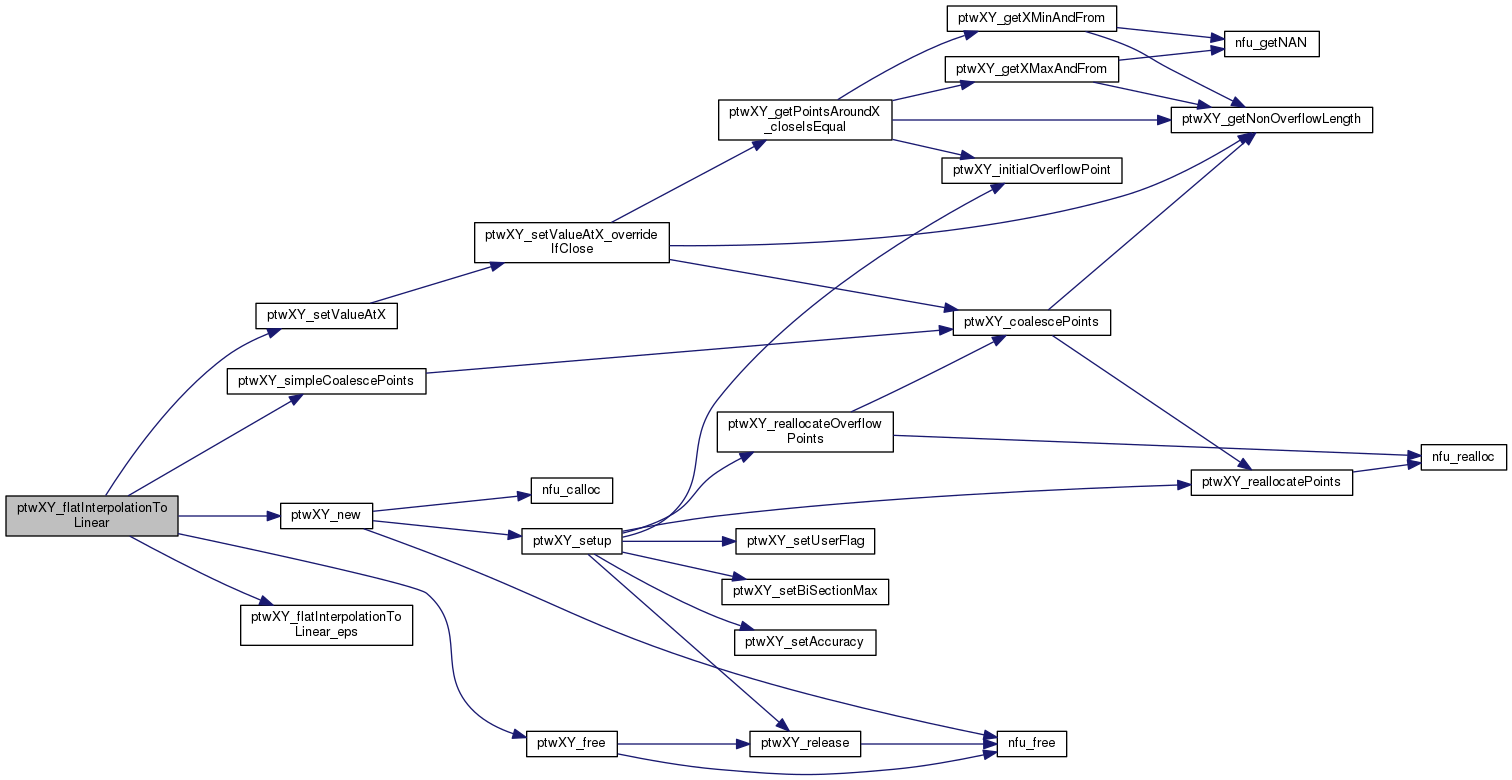
|
static |
| ptwXYPoints* ptwXY_fromUnitbase | ( | ptwXYPoints * | ptwXY, |
| double | xMin, | ||
| double | xMax, | ||
| nfu_status * | status | ||
| ) |
Definition at line 331 of file ptwXY_interpolation.cc.


| nfu_status ptwXY_interpolatePoint | ( | ptwXY_interpolation | interpolation, |
| double | x, | ||
| double * | y, | ||
| double | x1, | ||
| double | y1, | ||
| double | x2, | ||
| double | y2 | ||
| ) |
Definition at line 30 of file ptwXY_interpolation.cc.
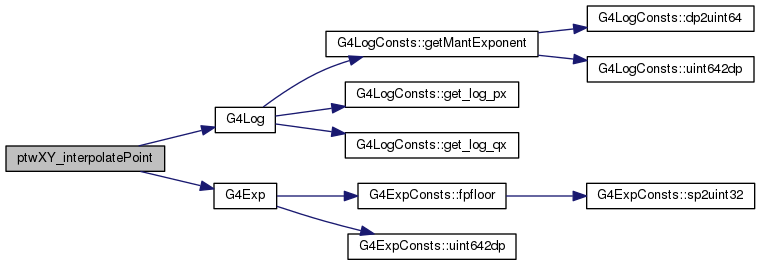
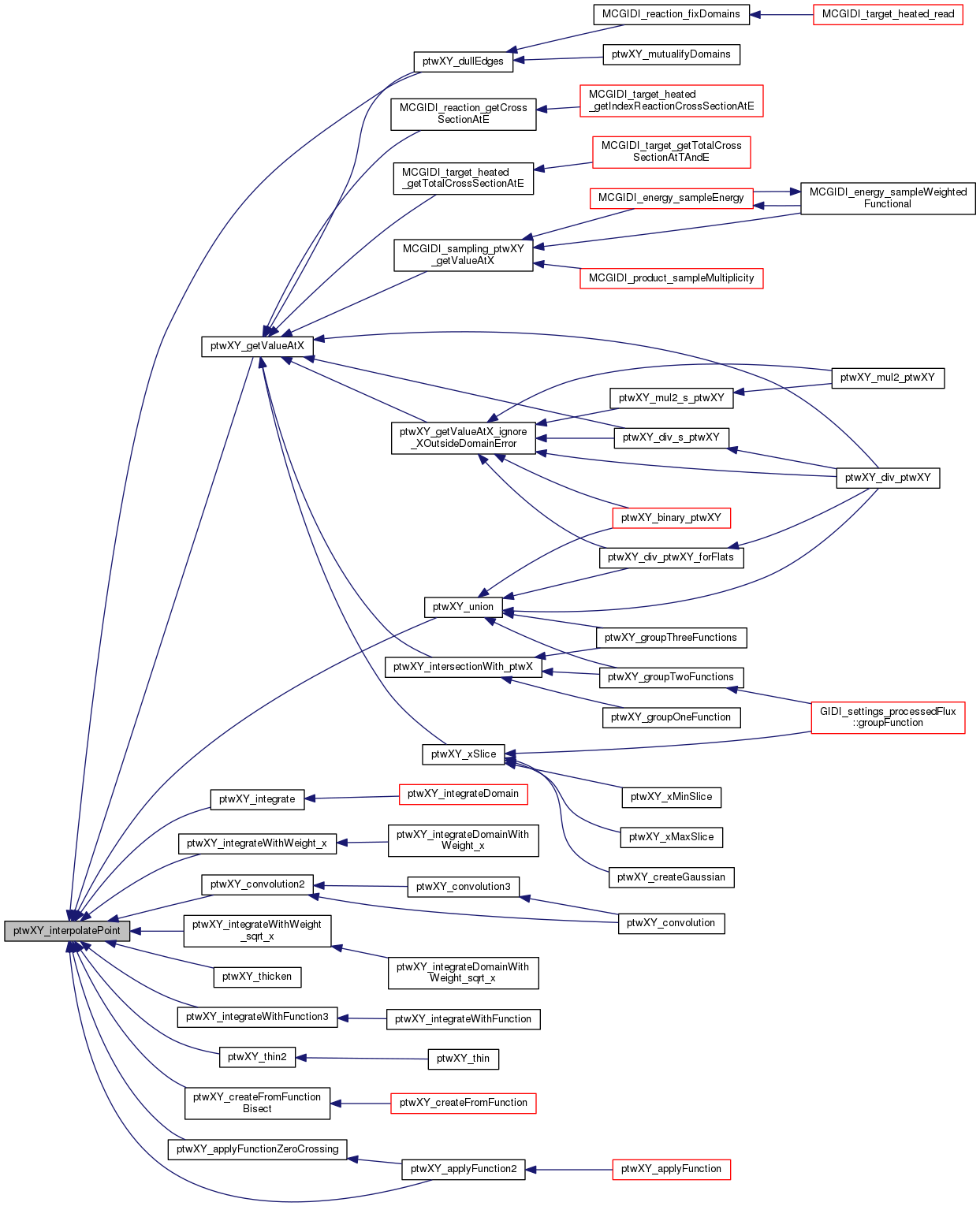
|
static |
Definition at line 252 of file ptwXY_interpolation.cc.


|
static |
Definition at line 269 of file ptwXY_interpolation.cc.


|
static |
Definition at line 225 of file ptwXY_interpolation.cc.
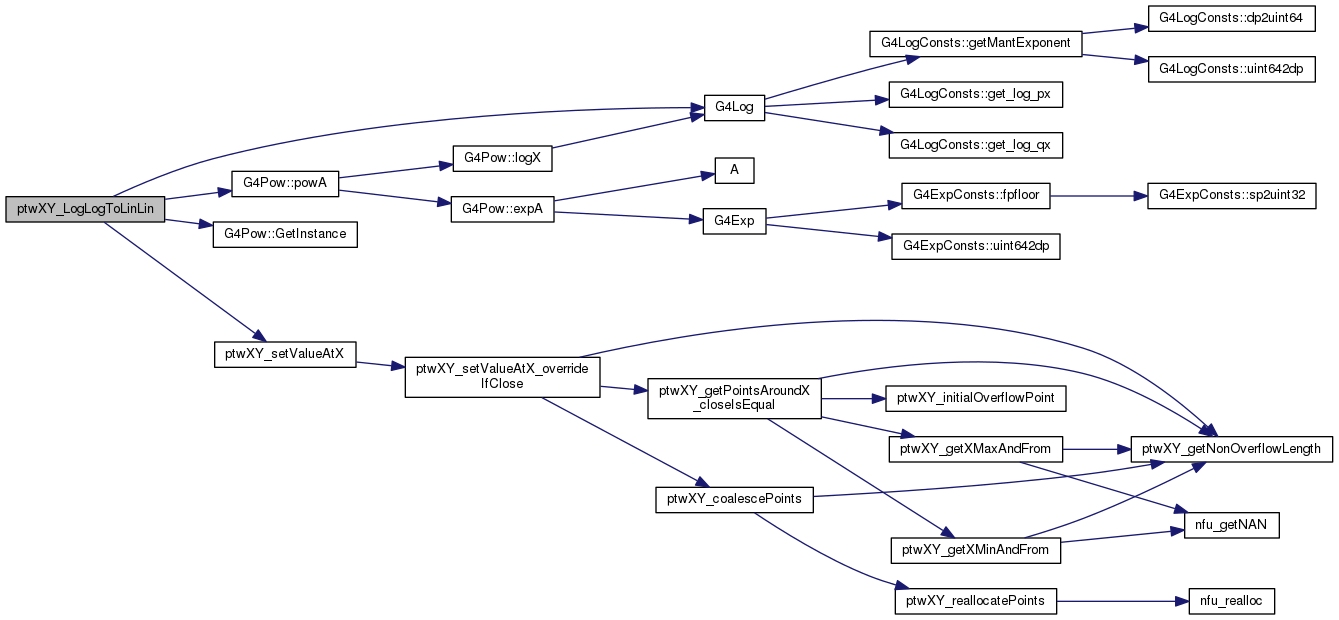

|
static |
Definition at line 288 of file ptwXY_interpolation.cc.


| ptwXYPoints* ptwXY_toOtherInterpolation | ( | ptwXYPoints * | ptwXY, |
| ptwXY_interpolation | interpolationTo, | ||
| double | accuracy, | ||
| nfu_status * | status | ||
| ) |
Definition at line 153 of file ptwXY_interpolation.cc.
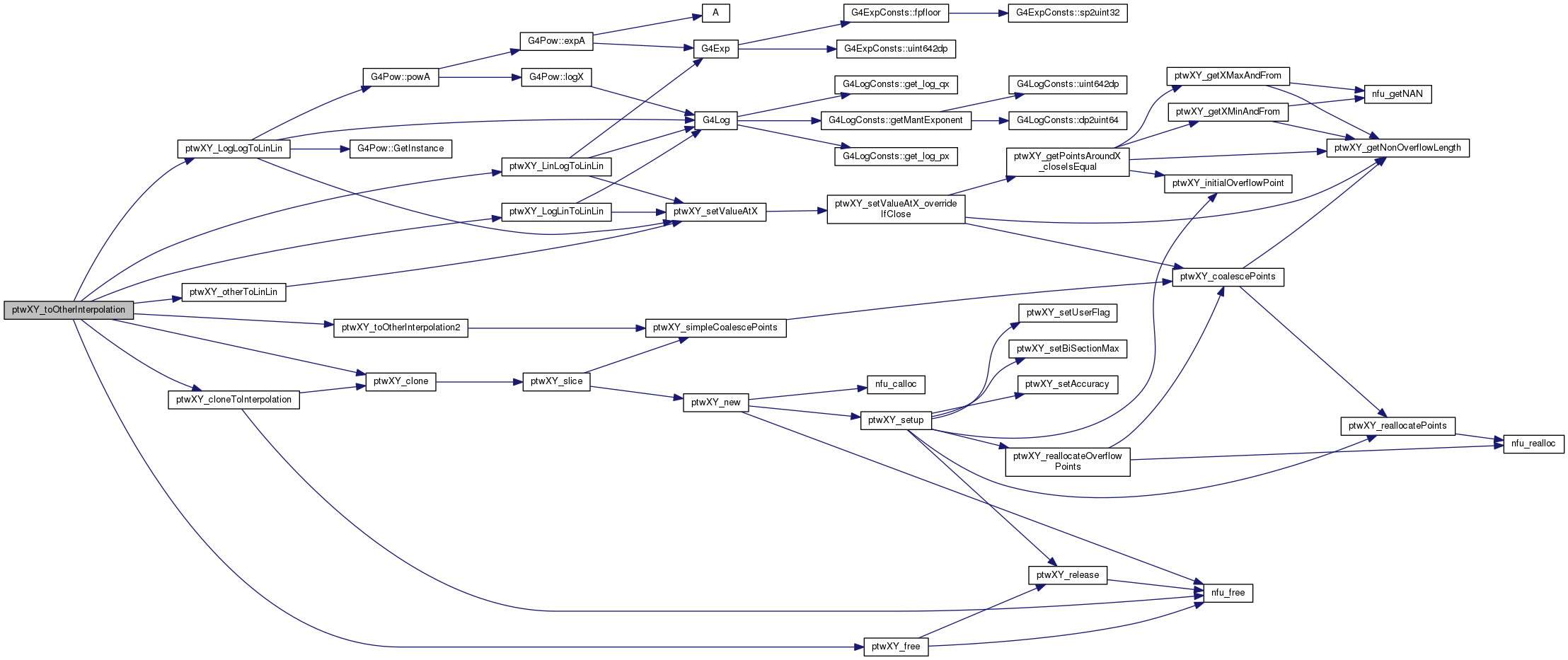
|
static |
Definition at line 201 of file ptwXY_interpolation.cc.


| ptwXYPoints* ptwXY_toUnitbase | ( | ptwXYPoints * | ptwXY, |
| nfu_status * | status | ||
| ) |
Definition at line 306 of file ptwXY_interpolation.cc.


| ptwXYPoints* ptwXY_unitbaseInterpolate | ( | double | w, |
| double | w1, | ||
| ptwXYPoints * | ptwXY1, | ||
| double | w2, | ||
| ptwXYPoints * | ptwXY2, | ||
| nfu_status * | status | ||
| ) |
Definition at line 363 of file ptwXY_interpolation.cc.
